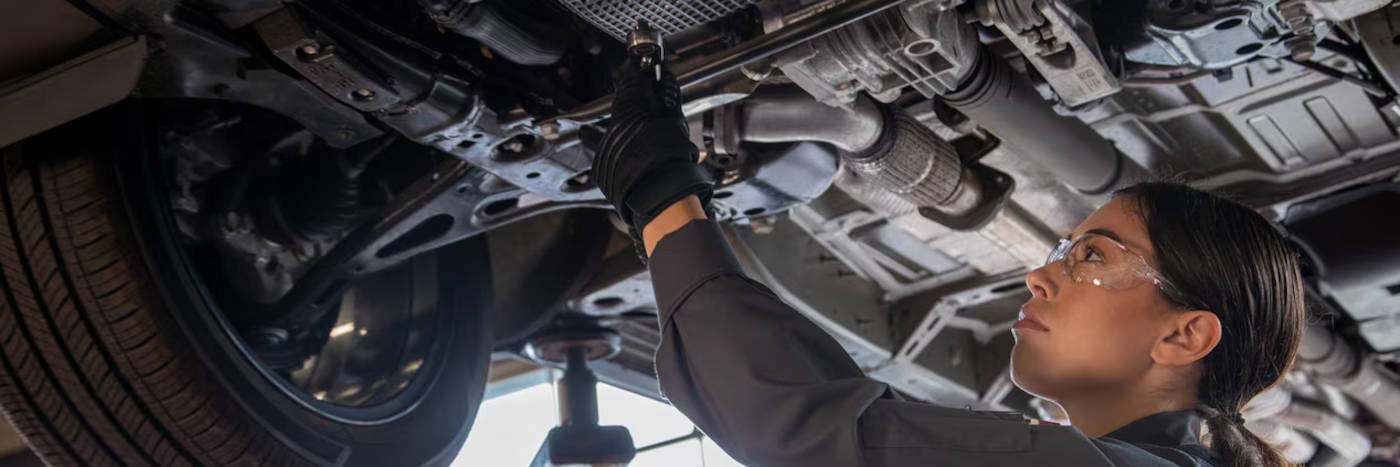
How Often Should You Change Your Oil Filter?

Changing your oil filter is a fundamental aspect of vehicle maintenance that directly influences engine performance and longevity. Understanding the role of the oil filter, the importance of regular changes, and when to perform these changes can significantly enhance your driving experience and keep your Chevy running smoothly. In this article, we'll explore the intricacies of oil filters, how they work, and how often to change the oil filter in your car.
What is an Oil Filter?
An oil filter is a critical component of your vehicle's engine. Its primary function is to remove contaminants, debris, and impurities from the engine oil as it circulates through the engine. By doing so, it helps maintain the cleanliness and effectiveness of the oil, ensuring that it can adequately lubricate and cool various engine parts.
The oil filter is typically made up of a filtering element, which is often constructed from paper or synthetic materials, encased in a metal or plastic housing. As the engine runs, oil is pumped through the filter, trapping particles such as dirt, metal shavings, and other debris. A well-functioning oil filter prevents these contaminants from re-entering the engine, thereby safeguarding its components from wear and tear.
Importance of Changing Your Oil Filter
Knowing how often to change oil filter in your car is crucial for several reasons:
- Maintaining Engine Health: A clean oil filter allows the oil to flow freely, ensuring that all engine parts receive the lubrication they need. This reduces friction, which can lead to overheating and eventual engine failure.
- Improving Fuel Efficiency: When your engine operates smoothly, it consumes fuel more efficiently. A clogged oil filter can hinder oil flow, making the engine work harder and increasing fuel consumption.
- Extending Engine Life: Regularly changing your oil filter helps prolong the life of your engine. By preventing contaminants from accumulating, you reduce the risk of damage, ensuring your engine runs efficiently for years to come.
- Preventing Costly Repairs: Neglecting to change your oil filter can lead to serious engine problems that may require costly repairs. By maintaining a clean oil filter, you can avoid these unnecessary expenses.
How Often to Change Your Oil Filter?
Manufacturer Recommendations
Most vehicle manufacturers recommend changing the oil filter every time you change your oil. For conventional oil, this is typically every 5,000 to 7,500 miles. Synthetic oil may extend the interval to 7,500 to 10,000 miles, depending on the vehicle and driving conditions. It's essential to consult your owner's manual for specific recommendations tailored to your model.
Driving Conditions and Their Impact
Driving conditions can significantly impact how often you should change your oil filter. Here are some conditions to consider:
- Frequent Short Trips: If you often drive short distances (less than 10 miles), your engine may not reach optimal operating temperature. This can lead to moisture buildup and sludge formation in the oil, necessitating more frequent oil and filter changes.
- Extreme Temperatures: Operating your vehicle in extreme heat or cold can affect oil quality and filter performance. In hotter climates, oil may break down more quickly, while cold weather can lead to thicker oil, putting additional strain on the filter.
- Towing and Heavy Loads: If you regularly tow heavy loads or carry substantial cargo, your engine works harder, generating more heat and stress. This can accelerate oil degradation and clogging of the oil filter.
- Dusty or Off-Road Conditions: Driving in dusty or off-road environments increases the likelihood of dirt and debris entering the oil system. This requires more frequent oil and filter changes to maintain engine cleanliness.

Signs That Your Oil Filter Needs Changing
Regularly monitoring your vehicle can help you identify how often to change oil filter in your car. Here are some signs to watch for:
Decreased Engine Performance
If you notice your vehicle has become sluggish or less responsive, it may be due to a clogged oil filter. Reduced oil flow can lead to decreased engine performance, making your vehicle feel unresponsive or underpowered.
Unusual Engine Noises
A well-maintained engine should run smoothly and quietly. If you hear unusual noises, such as knocking or grinding sounds, it may indicate that your oil filter is not functioning properly, leading to inadequate lubrication.
Oil Pressure Warning Light
Many vehicles come equipped with an oil pressure warning light on the dashboard. If this light illuminates, it could signal a clogged oil filter, restricting oil flow. Address this issue promptly to prevent serious engine damage.
Dirty or Dark Oil
Checking your oil regularly is a good practice. If the oil appears dirty or dark, it may indicate that the oil filter is no longer effectively removing contaminants. A fresh oil change and filter replacement can help restore the oil's quality.
Oil Leaks
If you notice oil pooling under your vehicle, it may indicate a failing oil filter or improper installation. Oil leaks should be addressed immediately, as they can lead to low oil levels and potential engine damage.
Professional Oil Filter Replacement Services
If you're unsure about how often to change oil filter or if you need assistance, professional oil filter replacement services can help. Trained technicians have the experience and knowledge to assess your vehicle and ensure that your oil filter is replaced correctly.
A professional service can include:
- Inspection of the Oil Filter: Technicians will examine the filter for signs of wear or damage, ensuring it functions as intended.
- Oil Change Services: Most professional oil filter replacements are accompanied by an oil change, ensuring that both the oil and filter are in optimal condition.
- Additional Maintenance: A comprehensive service may also include checks on other vital components, such as the engine, brakes, and fluids, to ensure your vehicle operates smoothly.
Get Service at Colonial Chevrolet in New London, CT
For reliable oil filter replacement and comprehensive vehicle maintenance, visit Colonial Chevrolet in New London, CT. Our skilled technicians are ready to provide the service your Chevy needs to stay in top condition. We offer a range of services, from oil changes to complete inspections, ensuring your vehicle runs smoothly and efficiently.